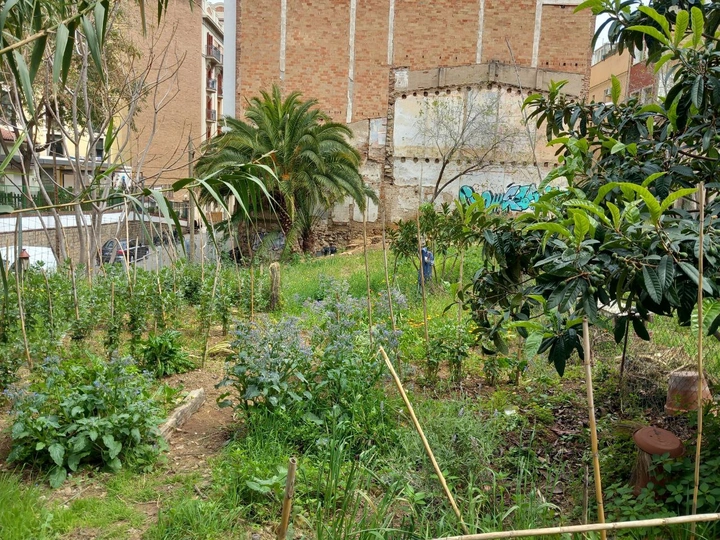Climate Land Trust

Lea Karrasch
Christof Mayer
Anna Pape
Anna Pape works at the intersection of architecture, urbanism, graphic design and art. She joined raumlaborberlin in 2021 and has been a researcher at LUH since 2023. Her focus is on the concept of the Just City, addressing ecological, economic and social dimensions. At the moment she is working on the study Urbane Optionsflächen and the EU project CiD - Circular Design focusing on urban transformation.
Lea Karrasch is a transformation designer and urban practitioner based in Barcelona. Co-founder of aquí SCCL and Metamorfosis – a queer ecology & degrowth fest, she works at the intersection of spatial justice, ecology, and collective care. Her practice bridges art, urbanism, and climate adaptation through ecofeminist and multispecies approaches, fostering regenerative environments, community resilience, and systemic change across European contexts. As a part-time shepherd she roots relational care in local struggles.
Aleksandra Ivashkevich is a spatial designer and researcher whose practice, guided by the ethics of co-creation, explores how intersections of spatial planning, cultural memory, and socio-ecological dynamics shape urban transformation. Based between Bergen and Berlin, she contributes to a range of interdisciplinary projects and teaches at Bergen School of Architecture. In addition to critical spatial practice, her co-curatorial work on INTRANSIT Architecture Film Days and the collaborative publication Minner om Møhlenpris use spatial storytelling to engage with the “urban polylogue” - a space of contested narratives, entangled agencies and alternative futures.
Christof Mayer is an architect and co-founder of raumlaborberlin. His main interest lies in the field of land politics, particularly in relation to urban development and transformation processes. From 2018-20 he was a visiting professor at the UDK Berlin in the Institute for Architecture and Urban Design. Since 2017 he has been professor at the Bergen School of Architecture.
Today, we face the escalating impacts of climate change - urban heat islands, increased flooding, progressive soil degradation and more. These challenges are compounded by market-driven urban development, which rapidly diminishes accessible green spaces. In this context, urban residents are often reduced to passive consumers of their environments, further entrenching patterns of social fragmentation and environmental injustice.
Climate Land Trust is a response to the critical intersection of ecological degradation and socio-spatial inequity. It offers a climate-responsible approach to regenerative land use and resilient community building, inviting a practice of commoning in favor of climate care.
Building on the principles of the Community Land Trust model - where communities collectively own and steward land to meet local needs and protect it from speculative processes - Climate Land Trust adapts this framework to support local climate action.
At the policy level, the initiative develops mechanisms that secure long-term land tenure, ensuring it is maintained in alignment with both ecological and community priorities. On the ground, the project implements co-design and co-construction practices for climate adaptation. Its methodology includes identifying potential sites, forming local working groups and collaboratively designing interventions such as vegetated buffers, shaded gathering spaces, and water retention systems.
This approach fosters peer learning, citizen science and participatory research - empowering communities to respond to the climate emergency while repairing the social and ecological fabric of their neighborhoods. Climate Land Trust reframes adaptation as a collective, place-based process centered on care, justice, and long-term resilience.
As an open network of collaborators across different countries, Climate Land Trust reclaims land as a commons and supports climate responsibility in becoming a shared, lived practice.